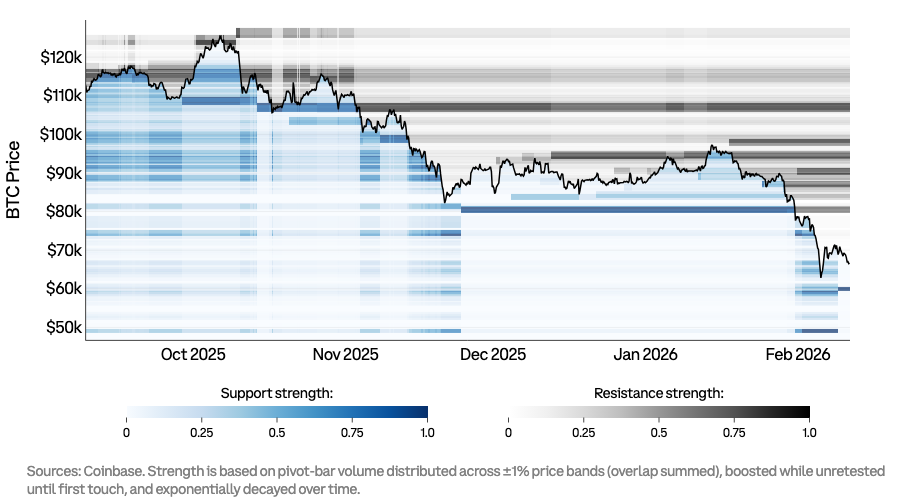
Smart Contract in 2025: Revolutionizing Fraud Prevention in Global Payments
Fraud in the global payments industry has long been a critical issue, with billions of dollars lost annually to unauthorized transactions, identity theft, and data manipulation. The advent of blockchain technology and its application in smart contracts has provided an innovative solution to these challenges, transforming the way businesses and individuals conduct financial transactions. Smart contracts, self-executing agreements powered by blockchain, are redefining fraud prevention by ensuring transparency, security, and automation.
This comprehensive exploration dives into how smart contracts are reshaping the global payments industry and the many benefits they bring to businesses and consumers.
Understanding Smart Contracts: A New Age of Digital Agreements
Smart contracts are self-executing pieces of code embedded in a blockchain network. Unlike traditional contracts, which rely on intermediaries such as lawyers or brokers to enforce terms, smart contracts automatically execute agreed-upon actions when predefined conditions are met. This innovative approach eliminates the need for trust-based systems and reduces the risk of fraud and manipulation.
Key Features of Smart Contracts
- Automation: Smart contracts execute automatically when all conditions are fulfilled, removing the need for manual intervention.
- Transparency: All parties involved can view the terms and execution process, ensuring trust and accountability.
- Immutability: Once deployed, smart contracts cannot be altered, ensuring that agreed-upon terms remain intact.
- Decentralization: Operating on a distributed ledger, smart contracts are resistant to tampering and unauthorized access.
These features make smart contracts a robust tool for preventing fraud in digital transactions, particularly in industries like global payments, supply chain management, and identity verification.
Fraud Prevention Through Blockchain Technology
Blockchain technology forms the backbone of smart contracts, providing a secure, transparent, and tamper-proof environment for their execution. By leveraging a distributed ledger system, blockchain ensures that every transaction is recorded and immutable. This is particularly significant in preventing fraudulent activities, which often thrive in opaque and centralized systems.
Eliminating Intermediaries
Traditional payment systems often involve intermediaries like banks or payment processors, creating multiple points of vulnerability. Smart contracts remove these intermediaries, directly connecting parties in a transaction. This direct approach reduces the chances of unauthorized access, tampering, or fraud.
Ensuring Transparency and Traceability
Every transaction processed via a smart contract is recorded on the blockchain, providing an auditable trail that cannot be altered. This level of transparency is crucial in detecting and preventing fraudulent behavior.
Conditional Execution
Smart contracts operate on an “If-Then” logic, ensuring that actions are only executed when all predefined conditions are satisfied. For example, a payment in a cross-border transaction will only be released once the goods are delivered and confirmed by the recipient. This conditional execution minimizes the risk of fraud or disputes.
Benefits of Smart Contracts for Businesses
Smart contracts are not limited to large corporations; they offer transformative benefits for businesses of all sizes, enhancing security, efficiency, and scalability.
Cost Reduction
By eliminating intermediaries, smart contracts reduce transaction costs significantly. Businesses no longer need to pay fees to banks, brokers, or third-party payment processors, making the technology particularly appealing to startups and small enterprises.
Enhanced Security
The cryptographic algorithms underpinning blockchain technology ensure that smart contracts are resistant to hacking and data breaches. This added layer of security is invaluable in protecting sensitive financial information.
Scalability and Flexibility
Smart contracts can be tailored to suit various business models and industries, making them a versatile solution. From real estate to e-commerce, businesses can integrate smart contracts into their operations to streamline processes and mitigate risks.
Revolutionizing Supply Chain Management
Supply chain management is one area where smart contracts have had a profound impact. Traditionally, supply chains suffer from inefficiencies, data manipulation, and a lack of transparency, all of which create opportunities for fraud. Smart contracts address these challenges by automating processes, ensuring data accuracy, and enabling real-time tracking.
Real-Time Tracking and Automation
Blockchain timestamps allow stakeholders to track goods at every stage of the supply chain, from manufacturing to delivery. Smart contracts automatically update the blockchain with each milestone, reducing the need for manual record-keeping and minimizing errors.
Ensuring Ethical Sourcing
Businesses can use smart contracts to verify the origin and authenticity of raw materials, ensuring compliance with ethical and quality standards. For example, a clothing manufacturer can trace the journey of cotton used in its products, verifying that it was sourced sustainably.
Minimizing Loopholes
By automating processes and maintaining an immutable record of transactions, smart contracts close the loopholes that fraudsters often exploit. Stakeholders can rest assured that all data is accurate and tamper-proof.
Authenticity Verification Through Blockchain
Smart contracts are instrumental in verifying the authenticity of high-value goods, such as jewelry, art, and luxury items. Customers often face concerns about counterfeit products, but blockchain technology offers a transparent and secure solution.
How It Works
When a product is created, its details—such as origin, materials, and manufacturing date—are recorded on the blockchain. As the product moves through the supply chain, these details are updated in real-time. Customers can scan a QR code or access the blockchain to verify the product’s authenticity before making a purchase.
Real-World Applications
- Jewelry Industry: Buyers can trace the origin of diamonds or precious metals, ensuring they are ethically sourced and not conflict materials.
- Luxury Goods: Brands can prove the authenticity of high-end products, deterring counterfeiters.
- Pharmaceuticals: Patients and healthcare providers can verify that medicines are genuine and meet regulatory standards.
Combating Identity Theft in Digital Transactions
Identity theft is a major concern in digital payments, where stolen credentials can lead to financial loss and data breaches. Smart contracts, integrated with blockchain networks, offer a secure alternative.
Permissioned Networks
Smart contracts operate on permissioned blockchain networks, where access is restricted to authorized participants. These networks use secure checkpoints to verify users’ identities, ensuring that only legitimate parties can execute transactions.
Eliminating Central Points of Failure
Traditional payment systems often rely on centralized databases, which are vulnerable to hacking and data breaches. Blockchain’s decentralized nature eliminates this risk, making identity theft significantly harder.
Replacing Legacy Systems
By integrating blockchain and smart contracts, businesses can replace outdated payment systems with secure, efficient alternatives. This transition not only reduces fraud but also streamlines operations, saving time and resources.
The Future of Global Payments with Smart Contracts
The adoption of smart contracts is ushering in a new era for the global payments industry. As the technology matures and becomes more widely implemented, its impact is expected to grow even further.
Widespread Adoption
From small businesses to multinational corporations, more entities are recognizing the benefits of smart contracts. Governments and regulatory bodies are also exploring blockchain technology to enhance transparency and reduce corruption.
Integration with Emerging Technologies
Smart contracts are being integrated with other cutting-edge technologies, such as artificial intelligence (AI) and the Internet of Things (IoT). For example, IoT devices can trigger smart contracts automatically, creating seamless and secure workflows in industries like logistics and healthcare.
Minimizing Fraud on a Global Scale
As smart contracts become more prevalent, they are expected to significantly reduce fraudulent activities across all sectors. Their ability to enforce transparency, security, and efficiency makes them a cornerstone of the future financial ecosystem.
Conclusion
Smart contracts represent a paradigm shift in how we approach fraud prevention and financial transactions. By leveraging blockchain technology, these digital agreements provide an unparalleled level of security, transparency, and automation. From streamlining supply chains to combating identity theft, the applications of smart contracts are vast and transformative.
As the global payments industry continues to evolve, smart contracts will play a critical role in addressing its vulnerabilities, creating a more secure and efficient financial landscape for businesses and individuals alike.


